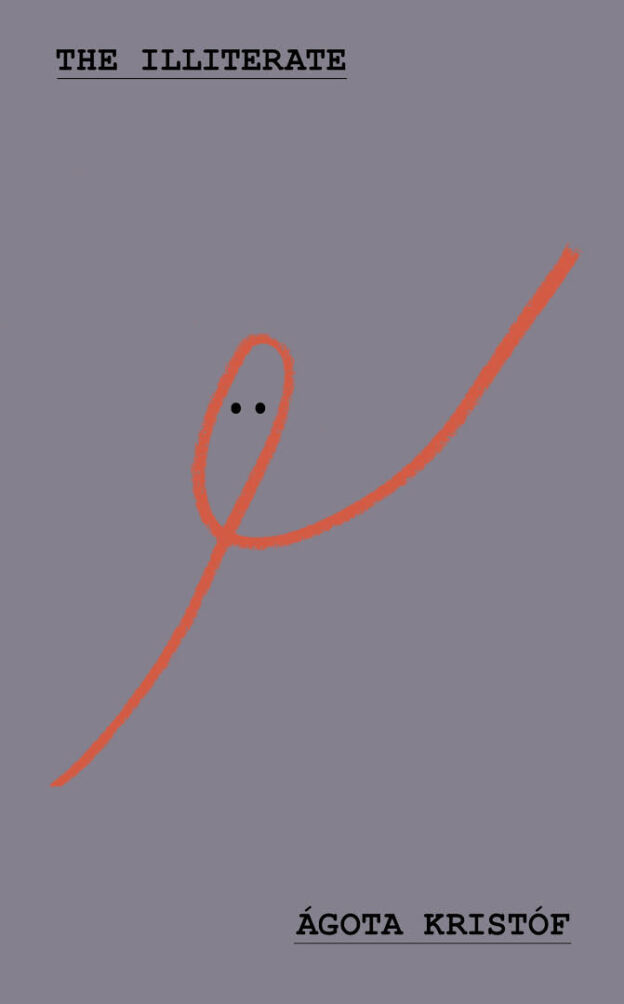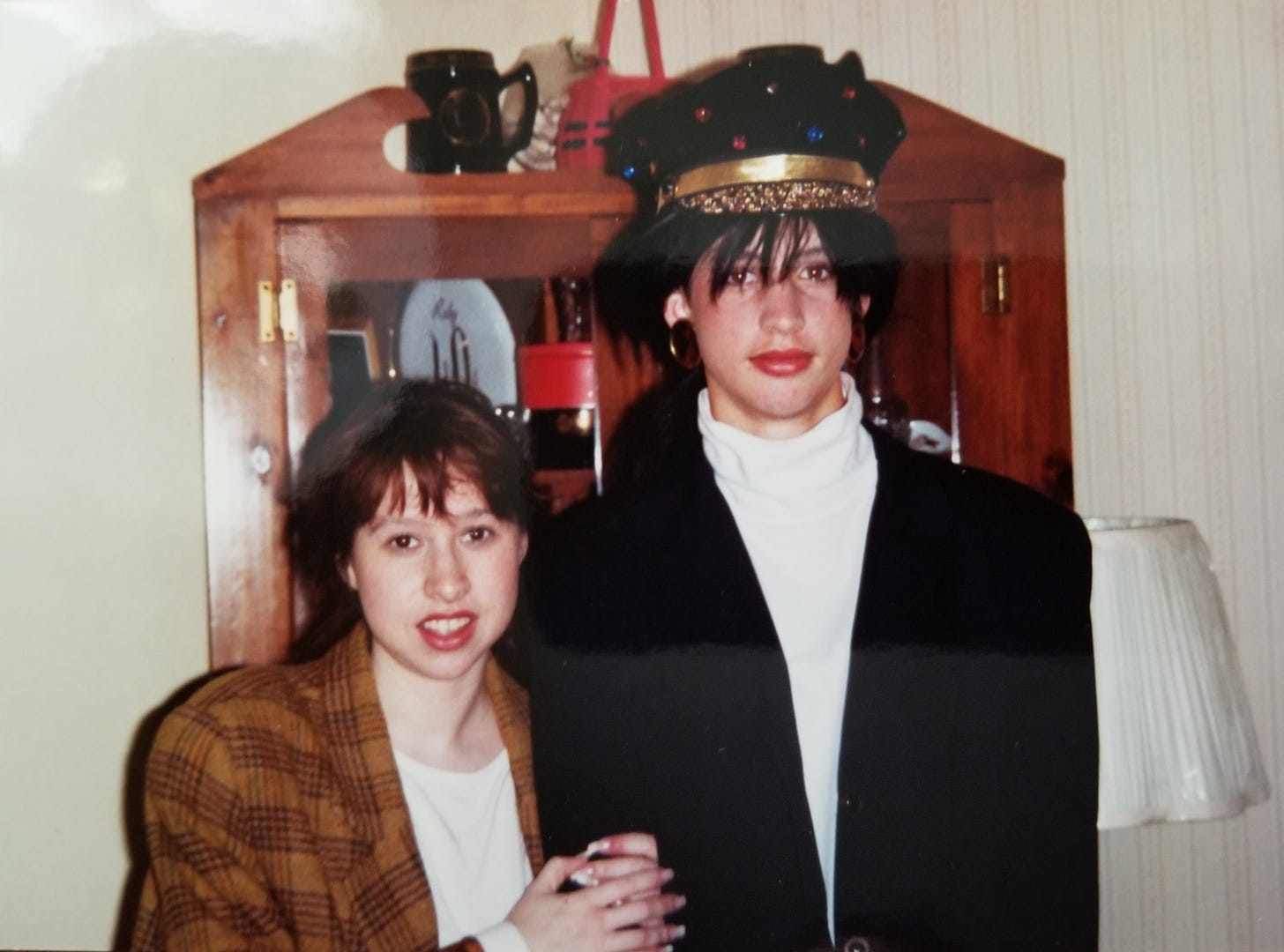I Was a Teen Drag Princess
My Fellow Shennyer:
When does your summer end? Was it last weekend? Being a schoolteacher, mine ends at day one of the semester, maybe even at new student orientation the week before, meaning my summer’s over in early August. A drag.
But of course summer continues, if only meteorologically and calendrically. Mine’s been a summer of new experiences, a summer of listening, inexplicably, to Guided By Voices’ ‘Crunch Pillow’…
…and I’m hoping to get a bit more of both in before Sept 22, when there’s no question of summer’s end. Last week, I was hanging laundry in closet, and I looked at one of N’s flannel shirts, and felt a charge hit me: soon it’ll be time to wear shirts like that again. I felt summer end right in that moment, and I left the closet ready for fall.
Which in San Francisco is our summer, our hottest, sunniest season. What if time was a drag, or in drag? This is a drag-ly issue.
Yours:
Dave
Endorsements
1. The New York Review of Books
For a while, I’ve wondered whether I like books. Is this another made-up narrative across 280 pages? Did I choose an unfitting career path? In time, it occurred to me that my conversations about books were happening only at my job, where we talk about books as things we need to make, and on Instagram, where talk about books is less about what they’re saying than what they’re doing. I do like books, I’ve always liked books, and I like them because they tell me things other people can’t, or won’t. The NYRB is a dry magazine, even at the level of the paper it’s printed on. It is enormous and dense, with plenty of articles you’ll never want to read, but it always sets a book within a larger cultural conversation, or as an outcropping of history—even if only the history of its author's career. Its range is Saharanly vast, and I’m happier for broader conversations to come back in my life. I recently renewed after lapsing during the pandemic, and I’m once again making shopping lists for my next trip to the bookstore.
2. Ágota Kristóf’s The Illiterate
Perhaps my favorite title for a memoir. Hungarian-born Kristóf fled to Austria in her twenties with her husband and infant, settling eventually in Switzerland, and needing to learn a new language that never really became her own, even though she wrote 7 novels and more, including this memoir, in French. The story is good, especially in her thoughts on the refugee’s loss of country and language; if you think migration is about people seeking a ‘better’ life in the West (or America), Kristóf has a thing or two to tell you. The whole thing is all of 43 pages, the prose so spare, finding a way to be deeply moving without much emotion. Here’s its opening:
I read. It is like a disease. I read everything that comes to hand, everything that meets my glance: newspapers, schoolbooks, posters, bits of paper found on the street, recipes, children’s books. Everything in print.
I am four years old. The war has just begun.
The 3rd chapter of my memoir was originally 21,000 words. With much work I got it down to 11,000. After reading The Illiterate, it’s now 9,200, and I’m at last happy with it.
I Was a Teen Drag Princess
I mean, ‘Queen’ feels like someone’s getting a little big for her britches.
The last Shenny with Caitlin had me thinking about spring 1992 and being in the middle school musical, Rock ‘N’ Roll. As I said, I got a role with no lines: maltshopper in Act I and member of the motorcycle gang in Act II. This wasn’t how it was supposed to go; two years previous, I was cast as the king in the 6th-grade madrigal feast, the male lead, and around that time I’d had designs on being an actor (practical ones: the idea was to teach high school English for a paycheck and do summer stock for fun). Did I take theater classes in middle school? I did not. What song did I sing in my audition for a rollicking 50’s musical? R.E.M.’s ‘Hairshirt’:
My being guided quietly to the background of the play was my own fault, is what I mean, but the regret stuck around—especially as my close friends BJ and Russell got the deuteragonistic roles of Manfred and Duffy, close friends of the male lead. I’d wanted people to look at me and confirm something I hoped I saw in myself, but that wouldn’t happen now. Not this time at least.
What was that something exactly? A specialness? A reason to look a second time? The queer theorist in me is itching to write about wanting, in the musical, to turn my daily experience of the closet into an erotics of performance, but in those days I knew, deep down, I was secretly like everyone else. If only the directors, my castmates, and the hundreds of kids at school could only see it.
We spent a lot of afterschool hours in the theater classroom those weeks, inevitably putting Nevermind on the boombox to knock our bodies into each other again. Well, we boys did this. The girls hung out outside, jitterbugging or whatever, and one day, just us boys, I opened up a cabinet in the theater classroom and found a tatty old wig the color of bandaids. I pulled it off the shelf and held it in my hands. Would it be funny if…? I dipped my head into it, tugged it close, and the locks licked my shoulders just so when I moved my head over here, and then over there. A pulse coursed through me, like an electric shock that sloughed off my rusty parts.
My body moved differently now. It was moved by my body, not my jumpy mind.
The boys were watching me, all this while, waiting to see what I would do, and what I did was look one of them in the eye as though he were a snack. ‘Hello,’ I said, my voice a husky rustle, like Kathleen Turner’s. My body knew how to slink closer to him, how to move my limbs like tendrils in lakewater. ‘What’s your name, big boy?’
‘CJ,’ he said, and I pretended I didn’t know that. CJ was a skater punk in real life who got cast to the football team, and I looked in his eyes for that boy on the football team. ‘What’s yours?’ he asked.
In a wink it came to me: ‘I’m Daisy.’
Daisy was a joke. I stole nearly all of her moves from the Kids in the Hall, my suburban TV drag parents. She could have been another Sizzler Sister:
I did my Daisy routine a dozen times during our run, but didn’t have anywhere to take the character, because she wasn’t even a character. Daisy was a caricature of women as seen by the kind of men I wanted to feel comfortably one of. She got laffs from the boys, and what I got was some happy form of wrought attention, stolen from them the way some men steal a kiss. Then the run of Rock ‘N’ Roll ended and I never put a wig on again.
Until later that year, when I needed a Halloween costume. At this point I was 14, and Shani, our eldest sister, was 20, and a club kid, going out most weekends to Tracks, Fifth Column, Spy Club in outfits I thought were mad and outlandish: black ankle boots with high heels, bejeweled hats with S&M visors, blazers with linebacker shoulderpads.
My friend Mark and I joked about Shani, her weird club clothes, because we revered punk and the Dead Milkmen, singing along knowingly to their ‘You’ll dance to anything by Depeche Commode.’ But behind our joking was some admiration: Shani got to go to clubs in DC without needing our parents’ permission. City nightlife was real, not just on TV, and she was living in it.
No wonder I got the idea to be her for Halloween.
The Kuhnses across the street had a wig I could borrow that approximated Shani’s long, dark hair. Taller than her, I had to wear my own turtleneck, but her blazers were enormous and did the job. My hips were girlish enough to fit in her taper-leg stonewash jeans, though the hems hung a little high on the ankle. Pushing the joke to its limit, I borrowed one of her bras and stuffed it with my tubesocks.
All that was left was for Shani to do my makeup, the night of the Halloween party I was going to. I don’t remember this part of the evening, and I don’t think it was the first time one of my sisters put makeup on me, or did something with my hair. But I remember when it was all over, and it was time to snap a photo:
That’s Mom behind the camera, and behind her is our kitchen, and in my memory Dad lurks around the corners in there, sneaking peeks at what his only son has done to himself. We all made jokes about it that night. I love this photo. It’s one of my favorite things to gaze at. I wish I could’ve mirrored Shani’s Ringwaldian ingenue look, but my body has none of the slink that Daisy once gave it, my smile full of caution.
But in the eyes I can see it, that transformative pulse. It wasn’t like something snapping into place, that first-time comfort in one’s body you read about in trans memoirs. That’s the look of a boy who knows he’s getting away with something, daring his own ideas, whether an audience is waiting for it or not.
Years later, I learned that CJ’s dad once asked him—after I came over to their house—if he wasn’t worried I’d make a pass, and I was struck by how even grownups seemed to think I was this little faggot. But CJ had nothing to worry about: back then, I was only attracted to my bullies. And I was far too afraid of sex to ever really admit that.
When I look at the girls I was for a while, Daisy, ‘Shani’, I don’t remember feeling afraid. I remember feeling sly. A little bit stupid but a little bit smart. People had been calling me gay for years, and every day of my life I looked in the mirror and wouldn’t see it. I wasn’t different. I couldn’t be. I could only keep assuring myself I wasn’t, really, different.
But then I put on those wigs, as if saying to the world, I’ll show you different.
This story ends on a Friday night, the middle of Rock ‘N’ Roll’s 3-night run. That afternoon, the gal who played the leader of the motorcycle gang—her name was Becky McCracken—called the directors to say that her dad had died, and she needed to miss the show. Panic backstage. Becky was the only one of us who had any lines, and she had a ton. The directors looked to us talentless gang members: Who could learn her part before curtain?
They didn’t give me a wig, but I did get to wear Becky’s leather jacket.
At the end of the show, the curtain closed, our star, a fawny, blond boy named J.R. Hawkins, walked out to the dais to thank me, on behalf of the cast, for stepping into the role last minute. He said my name out loud, and in the clamor of the audience leaving their seats, it was unclear if anyone heard.
But I heard.
This week’s thing I did not buy at the antique store is Joe Sgro’s tantalizing record, A Guitar And You (1959).













